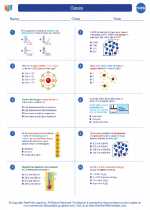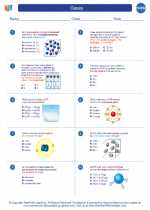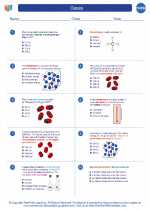Pharmaceuticals
Pharmaceuticals are substances or products used for preventing, diagnosing, and treating diseases. They can be synthetic or natural compounds that have pharmacological effects on the body. The pharmaceutical industry is responsible for the research, development, production, and distribution of pharmaceutical drugs.
Key Concepts
- Drug Development: The process of discovering and bringing new pharmaceutical drugs to the market involves various stages such as drug discovery, preclinical testing, clinical trials, and regulatory approval.
- Drug Classification: Pharmaceuticals can be classified based on their therapeutic effects, chemical structure, and mechanism of action. Common categories include analgesics, antibiotics, antivirals, antidepressants, and more.
- Pharmacokinetics: This area of study focuses on how drugs are absorbed, distributed, metabolized, and excreted by the body. Understanding pharmacokinetics is crucial for determining the appropriate dosage and administration of pharmaceuticals.
- Pharmacodynamics: Pharmacodynamics explores how drugs interact with specific drug targets in the body to produce their therapeutic effects. This includes studying drug-receptor interactions, signal transduction pathways, and molecular mechanisms of drug action.
- Drug Formulation: Pharmaceutical drugs come in various formulations such as tablets, capsules, syrups, injections, and topical preparations. Formulation science involves designing drug delivery systems to optimize the drug's efficacy and safety.
Study Guide
To better understand the field of pharmaceuticals, consider the following study approach:
- Start with the basics of chemistry, including chemical bonding, molecular structure, and functional groups.
- Learn about the principles of organic chemistry and biochemistry, as many pharmaceutical compounds are organic molecules that interact with biological systems.
- Study the fundamentals of pharmacology, including drug absorption, distribution, metabolism, and excretion, as well as mechanisms of drug action and drug-receptor interactions.
- Explore the process of drug discovery and development, including preclinical testing, clinical trials, and regulatory approval procedures.
- Understand the principles of drug formulation and delivery systems, including the design of dosage forms and drug delivery devices.
- Stay updated on current trends and advancements in the pharmaceutical industry, including personalized medicine, biopharmaceuticals, and nanotechnology-based drug delivery systems.
By mastering these concepts and study areas, students can gain a comprehensive understanding of pharmaceuticals and their role in healthcare and medicine.
.◂Chemistry Worksheets and Study Guides High School. Gases
The resources above cover the following skills:
Physical Science
Energy - A. Energy is involved in all physical and chemical processes. It is conserved, and can be transformed from one form to another and into work. At the atomic and nuclear levels energy is not continuous but exists in discrete amounts. Energy and mass are related through Einstein's equation E=mc 2 . B. The properties of atomic nuclei are responsible for energy-related phenomena such as radioactivity, fission and fusion. C. Changes in entropy and energy that accompany chemical reactions influence reaction paths. Chemical reactions result in the release or absorption of energy. D. The theory of electromagnetism explains that electricity and magnetism are closely related. Electric charges are the source of electric fields. Moving charges generate magnetic fields. E. Waves are the propagation of a disturbance. They transport energy and momentum but do not transport matter.
Relate temperature to the average molecular kinetic energy.



